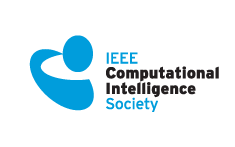2017 IEEE Symposium
on Computational Intelligence and Ensemble Learning
(IEEE CIEL'2017)
Ensemble learning
attempts to enhance the performance of systems (clustering,
classification, prediction, feature selection, search, optimization,
rule extraction, etc.) by using multiple models instead of using a
single model. This approach is intuitively meaningful as a single model
may not always be the best for solving a complex problem (also known as
the no free lunch theorem) while multiple models are more likely to
yield results better than each of the constituent models. Although in
the past, ensemble methods have been mainly studied in the context of
classification and time series prediction, recently they are being used
in algorithms in other scenarios such as clustering, fuzzy systems,
evolutionary algorithms, dimensionality reduction and so on.
The aim of this symposium is to bring together researchers and practitioners who are working in the overlapping fields of ensemble methods and computational intelligence. Papers dealing with theory, algorithms, analysis, and applications of ensemble of computational intelligence methods are sought for this symposium.
The aim of this symposium is to bring together researchers and practitioners who are working in the overlapping fields of ensemble methods and computational intelligence. Papers dealing with theory, algorithms, analysis, and applications of ensemble of computational intelligence methods are sought for this symposium.
Topics
Topics covered by the CIEL 2017 include, but are not limited to, the following:
- Ensemble of evolutionary algorithms
- Parameter and operator ensembles for evolutionary algorithms
- Hyper-heuristics
- Portfolio of algorithms and multi-method search
- Ensemble of evolutionary algorithms for optimization scenarios such as multi-objective, combinatorial, constrained, etc.
- Hybridization of evolutionary algorithms with other search methods & ensemble methods
- Ensemble of fuzzy models
- Fuzzy ensemble classifiers and fuzzy ensemble predictors (Type-1 and Type-2)
- Fuzzy ensemble feature selection/dimensionality reduction
- Aggregation operators for fuzzy ensemble methods
- Rough Set based ensemble clustering and classification
- Ensemble of neural networks
- Ensemble of neural classifier and clustering systems
- Ensemble of neural feature selection algorithms
- Properties of neural ensembles
- Ensemble methods such as boosting, bagging, random forests, multiple classifier systems, mixture of experts, and multiple kernels
- Ensemble methods for regression, classification, clustering, ranking, feature selection, prediction, etc.
- Issues such as selection of constituent models, fusion and diversity of models in an ensemble, etc.
- Hybridization of computational intelligence ensemble systems
Accepted
Special Sessions
- Automated Algorithm Design as Ensemble Techniques
- Organizers:
Patrick De Causmaecker, KU Leuven
Hoong Chuin Lau, Singapore Management University
Mustafa Misir, Nanjing University of Aeronautics and Astronautics
Ender Ozcan, University of Nottingham - More Information
Organisers
 |
P. N. Suganthan Nanyang Technological University, Singapore. Email:epnsugan@ntu.edu.sg |
 |
Nikhil R Pal Indian Statistical Institute, Calcutta, India. Email:nikhil@isical.ac.in |
 |
Xin Yao University of Birmingham, UK. Email:x.yao@cs.bham.ac.uk |
Program
Committee
(To be announced)






